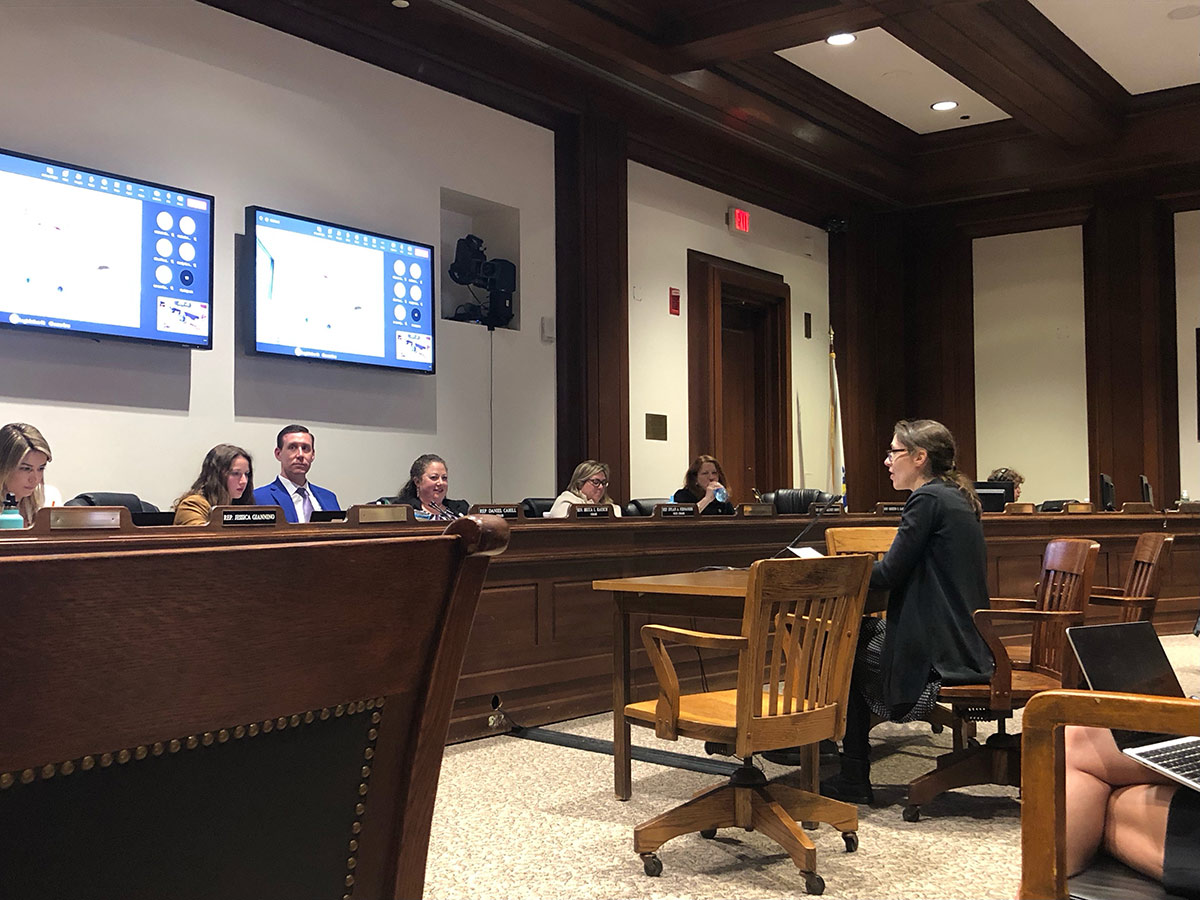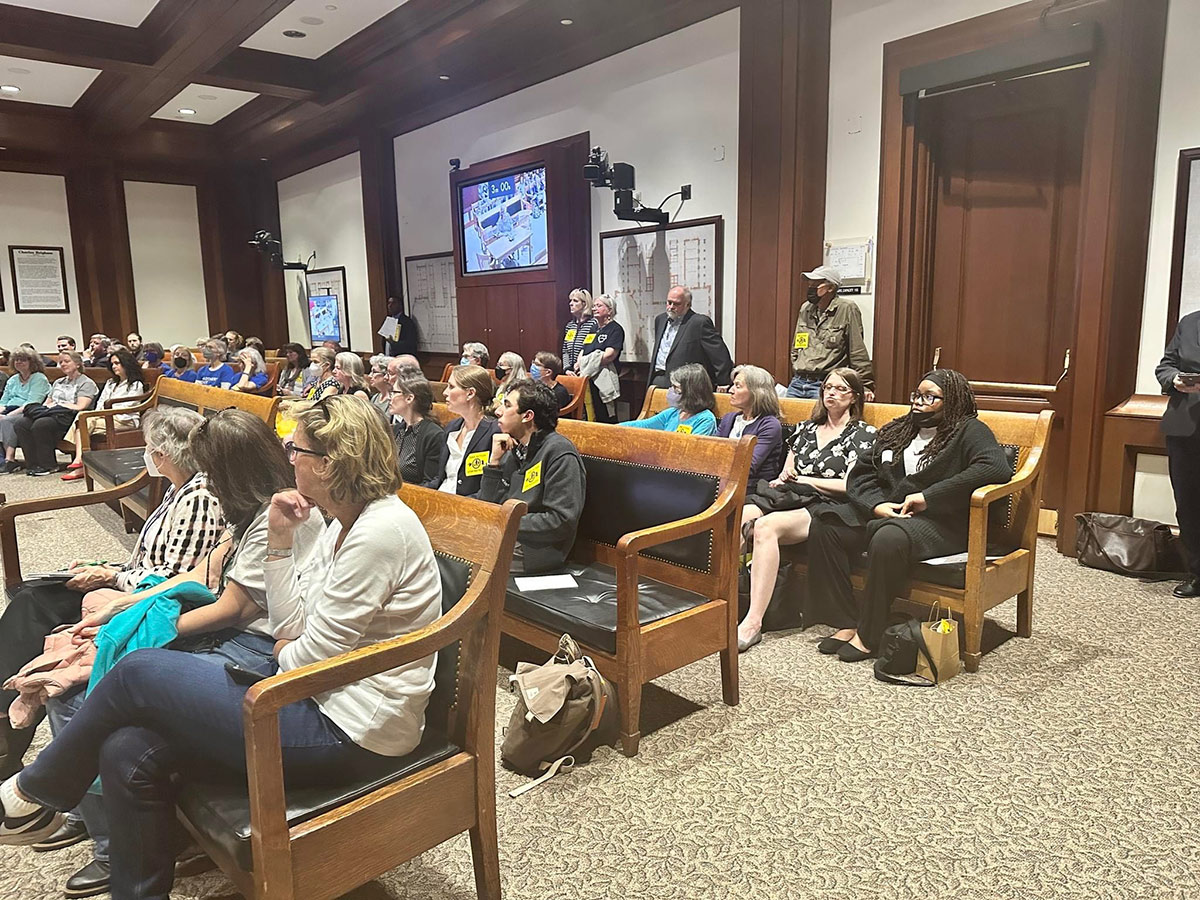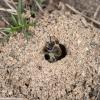From cherished pollinator species to dung beetles (the unsung heroes of decomposition), insects are in decline. Pesticide overuse is one of several leading causes.
But there is good news! This spring, bills were introduced to state legislatures across the nation to better regulate and reduce pesticide use, reflecting increased awareness among lawmakers about the impacts pesticides have on pollinators and other wildlife. This is a result that the Xerces Society and similar organizations have been pursuing for years.
A number of bills endorsed by the Xerces Society and our coalition partners advanced in the legislative process, and several have been signed into law. We offer the following session highlights.

Minnesota leads the way in pesticide regulation
At this moment, it is fitting that Minnesota is called the “North Star State,” providing direction for others to follow. A strong coalition of Minnesota-based and national organizations came together to drive hard at several bills this cycle, with great success. Governor Tim Walz signed the following bills into law, all supported by the Xerces Society:
- Regulating pesticide-treated seed (HF1317 / SF1339). Systemic pesticides, including neonicotinoids (“neonics”), are often used to coat seeds, and are then taken up by the plant as it grows. Because of a regulatory loophole, EPA does not monitor or otherwise regulate treated seed use and disposal, although improper disposal can have disastrous consequences. In the absence of federal regulation, Minnesota will now direct state officials to develop rules and consumer guidelines for the proper use and disposal of “waste” pesticide-treated seeds.
- Regulating pollinator-friendly plant labels (HF1497 / SF1130). Consumers are increasingly seeking out pollinator-friendly plants to support bees and butterflies. Last year, Xerces published a study showing that milkweeds from retail nurseries often have harmful (and sometimes lethal) levels of insecticides. Thus, plants advertised as pollinator-friendly may carry hidden risks for the very species we are trying to support through such purchases. This legislation tries to tackle this issue by prohibiting the use of a pollinator-friendly label if plants have been treated with any insecticides that are especially hazardous to pollinators. A similar bill has also been introduced to the U.S. Senate.
- Local control of pollinator-lethal pesticides (HF1130 / SF608). In most U.S. states, cities and towns cannot enact stronger restrictions on pesticides than what the state allows because of preemption laws. New legislation now allows Minnesota cities and towns to adopt an ordinance that restricts the non-agricultural outdoor use of pesticides labeled as highly toxic to bees.
- Pesticide ban on conservation land (HF921 / SF835). Use of neonicotinoids and chlorpyrifos is no longer permitted on land managed by the Minnesota Department of Natural Resources.

Colorado, Nevada, and New York expand regulation of neonics, joining other states
Neonicotinoids are a widely-used class of insecticides that are highly toxic to insects, including bees and butterflies.The European Union severely restricted neonic use in 2013 and a recent EPA assessment found that the top three neonics put over 200 species at risk of extinction, including the Karner blue butterfly and the rusty patched bumble bee. Even so, the U.S. has yet to appropriately restrict their use.
In response to federal inaction, states are taking the problem into their own hands. This spring, Colorado and Nevada enacted laws that restrict the sale and use of neonicotinoid pesticides, such that consumers can no longer purchase them off of retail shelves. They join eight other states restricting neonics, including Maryland (2016), Connecticut (2016), Maine (2018), Vermont (2019), Massachusetts (2021), New Jersey (2022), New York (2022), and Rhode Island (2022).
New Jersey, Maine, and now Nevada have taken their rulemaking one step further by prohibiting non-agricultural outdoor uses of neonics such as on turf grass and gardens, and pending legislation in New York and Connecticut would do the same. It is worth noting that Nevada’s bill had overwhelming bipartisan support and was quickly signed into law by Governor Joe Lombardo.
With passage of the Birds and Bees Protection Act (A.7640/S.1856A) in June, New York is poised to become the first state to enact a ban on the sale of neonic-treated seed for corn, soy, and wheat crops (with exceptions). The bill awaits a signature from Governor Kathy Hochul. Earlier this year, Xerces conservation biologist Rich Hatfield participated in an informative panel discussion about this bill.
Pesticide reform is tricky business. There is no denying that we are working against incredible inertia when it comes to policy change. Our overreliance on pesticides is a challenging and complex issue. While there are no silver bullet solutions, these bills signal a desire to move in a new, better direction and a willingness among state legislators to lead the way. This, in turn, is the result of the tireless work of engaged constituents, grassroots organizers, and education and advocacy groups. We’re excited to see continued progress in the year ahead.
If you have a legislative success story to share, we’d love to know about it. Contact us at [email protected].
Further Reading and Resources
- Neonicotinoid pesticides and their impacts:
- Understanding Neonicotinoids, Xerces Society
- How Neonicotinoids Can Kill Bees, Xerces Society Report
- American Bird Conservancy Report on Neonicotinoids
- Pesticide-treated seeds:
- State-level pesticide- and pollinator-related legislation:
- Other relevant resources:
- Bee-Safe Nursery Plants, Xerces Society
- Systemic Insecticides & Searchable Database, Xerces Society




